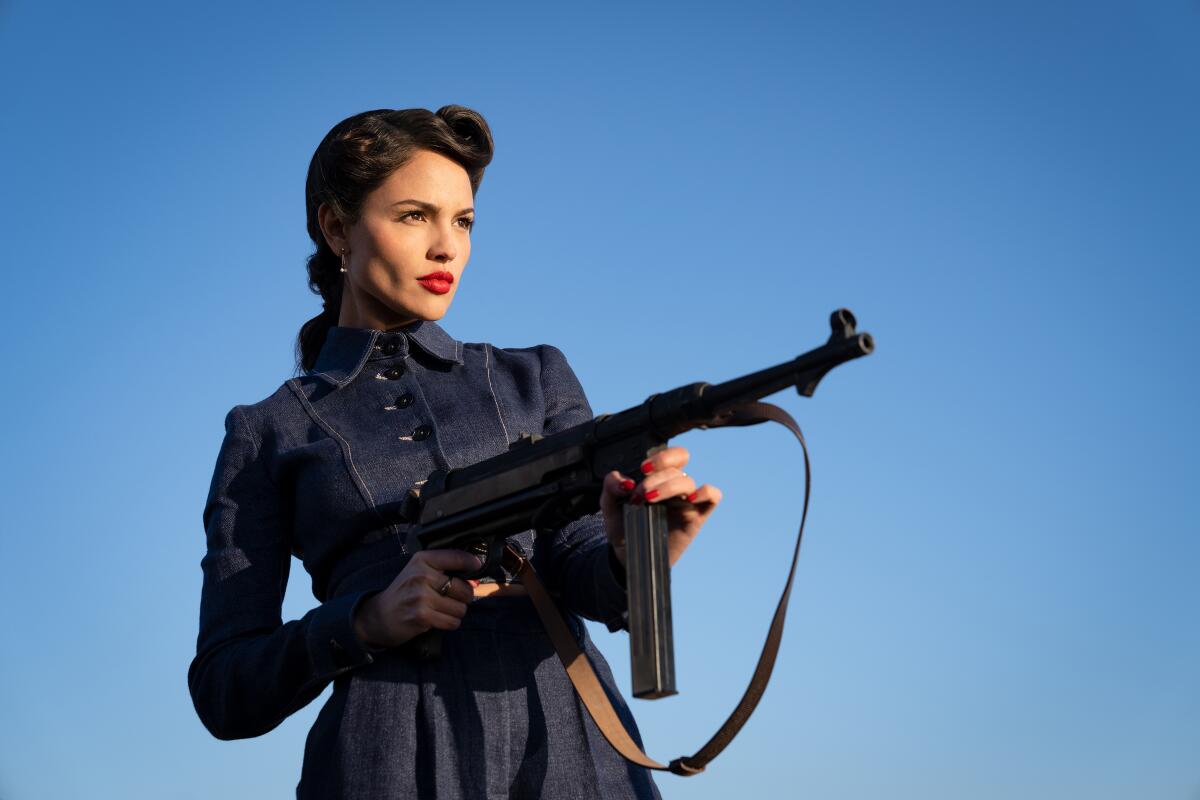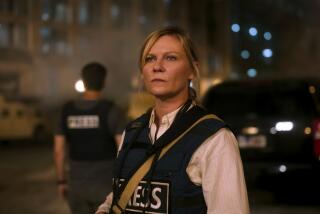Review: Long before Bond, ‘The Ministry of Ungentlemanly Warfare’ kicked off British covert ops

Guy Ritchie’s latest, the cumbersomely titled “The Ministry of Ungentlemanly Warfare,” is at once his “Inglourious Basterds” and his “Dunkirk.” With his adaptation of the 2016 nonfiction book “The Ministry of Ungentlemanly Warfare: How Churchill’s Secret Warriors Set Europe Ablaze and Gave Birth to Modern Black Ops” by historian and war reporter Damien Lewis, Ritchie borrows Quentin Tarantino’s winking postmodern retro style to pay homage to real-life British war heroes with the same reverence that Christopher Nolan paid to the heroes of Dunkirk.
The prolific Ritchie started out with cheeky crime comedies (“Lock, Stock and Two Smoking Barrels,” “Snatch”) and has dabbled in historical bombast (“King Arthur,” “Sherlock”), Disney remakes (“Aladdin”), contemporary thrillers (“Wrath of Man,” “The Covenant”) and, to diminishing returns, more recent crime comedies (“The Gentlemen,” “Operation Fortune: Ruse de Guerre”). But he finds a nice groove with this entertaining World War II not-quite-comedy. There’s a glee in the Nazi killing and an exceptionally dry humor that is English through and through, but Ritchie strikes a tone that rides the line between self-serious and self-consciously humorous.
If Tarantino uses a stylistic pastiche of 1960s and ’70s exploitation films and spaghetti westerns in order to rewrite history to his own liking, Ritchie borrows Tarantino’s approach to perform a kind of pulpy myth-making and celebrate a group of undersung real-life war heroes (who may have inspired Ian Fleming’s James Bond). The score by Christian Benstead is all Ennio Morricone-style whistles and guitars.
Though it is not named as such in the film, which is heavily imagined and fictionalized with the addition of a few new characters, the script, which is by Paul Tamasy, Eric Johnson, Arash Amel and Ritchie, essentially follows the 1942 special-operations mission known as “Operation Postmaster.” Concerned about the interference of German U-boats throttling England’s ability to receive supplies, Winston Churchill (Rory Kinnear in the stiffest makeup job seen in some time) gives the go-ahead for Brigadier Gubbins’ “M” to hire the right man to target an Italian freighter loaded with U-boat supplies. Cripple the U-boats, open the channel.

The right man for the job is the incarcerated Gus March-Phillips (Henry Cavill), and he assembles his team of expert rapscallions, including Danish warrior Anders Lessen (Alan Ritchson), explosives expert Freddy Alvarez (Henry Golding) and Irish sailor Henry Hayes (Hero Fiennes Tiffin). On the way to the Spanish island of Fernando Po, off the coast of equatorial Africa, they’ll have to make a stop to pick up Geoffrey Appleyard (Alex Pettyfer), imprisoned as a POW in a Nazi outpost on La Palma, in the Canary Islands.
Their liaisons on the ground in Fernando Po are the British secret agents Heron (Babs Olusanmokun) and Marjorie Stewart (Eiza González) a half-Jewish actor and singer trained in the spycraft of seduction, whose target is a sadistic, high-powered Nazi named Luhr (Til Schweiger). They also have an ally in the Eton-educated “Prince of Fernando Po” Kambili Kalu (Danny Sapani) and his private militia.
While Ritchie structures the film around tense conversations and bursts of violence, “The Ministry of Ungentlemanly Warfare” is a bit languidly paced in between and isn’t that suspenseful. In an opening sequence, we see our ad-hoc special forces team dispatch a group of German sailors with a bit of amateurish theater and a dose of their signature firepower. No one breaks a sweat, no one raises their voices, they never run out of ammo and even in extreme situations there’s time for droll Britishisms, smarmy jokes and homoerotic ribbing.
Ritchie positions these heroes as highly capable and utterly untouchable warriors, mowing down Nazis without ruffling their mustache hairs (hot tip: don’t Google these guys if you want to keep the good times rolling). It’s all a part of the fantasy he spins through style and reference. This isn’t an authentic representation of World War II, it’s an imagining of what this story would be like told in a ’70s exploitation flick. It’s the kind of movie that would star Rick Dalton, the character played by Leonardo DiCaprio in “Once Upon a Time… in Hollywood.” González isn’t miscast as English spy Marjorie Stewart because she’s playing the kind of actress who would play Stewart opposite Dalton.
Even if the heavy stylization leaves the film feeling a bit arch, there’s a real affection that comes through in Ritchie’s homage to these early special-forces soldiers, making them larger-than-life cinema heroes and letting the audience in on the fun. You’re only left wanting more time with this team. Who knows, maybe Ritchie will rewrite history to his liking if there’s another installment of ungentlemanly warfare.
Katie Walsh is a Tribune News Service film critic.
'The Ministry of Ungentlemanly Warfare'
Rating: R, for strong violence throughout and some language
Running time: 2 hours
Playing: In wide release Friday, April 19
More to Read
Only good movies
Get the Indie Focus newsletter, Mark Olsen's weekly guide to the world of cinema.
You may occasionally receive promotional content from the Los Angeles Times.






